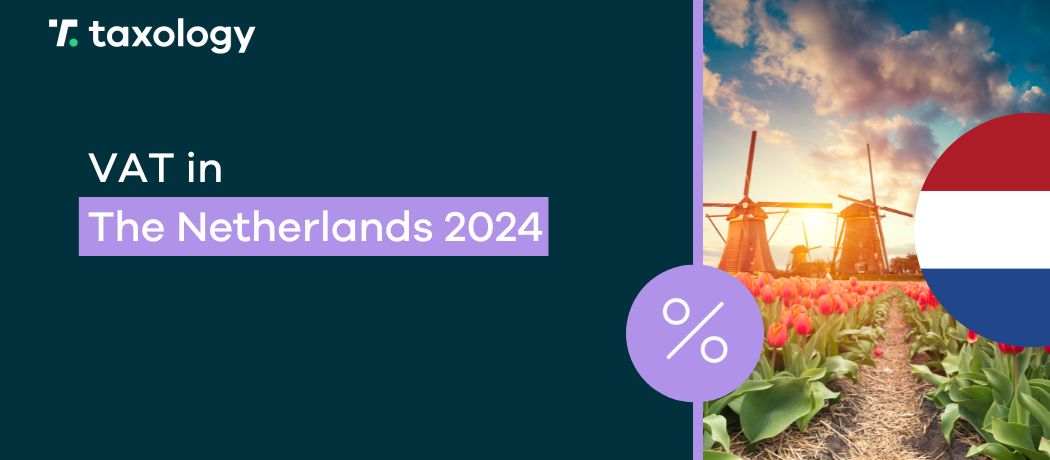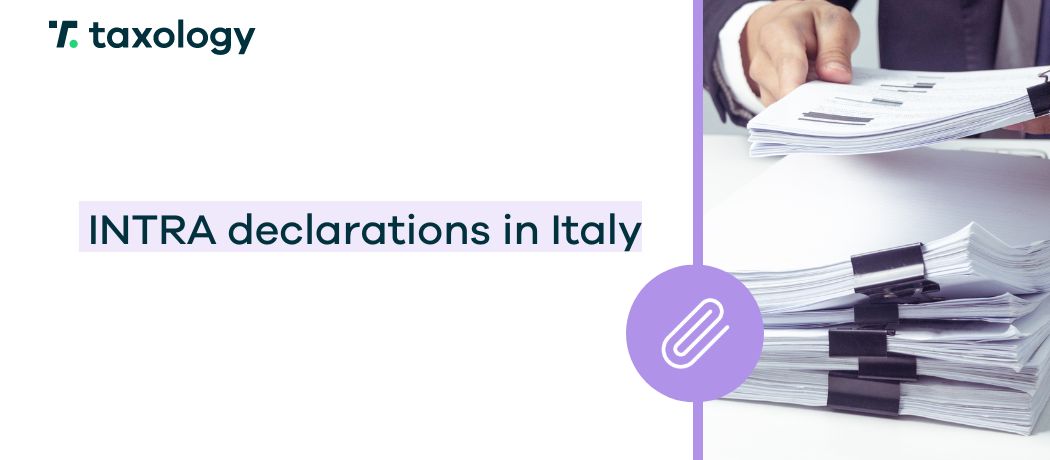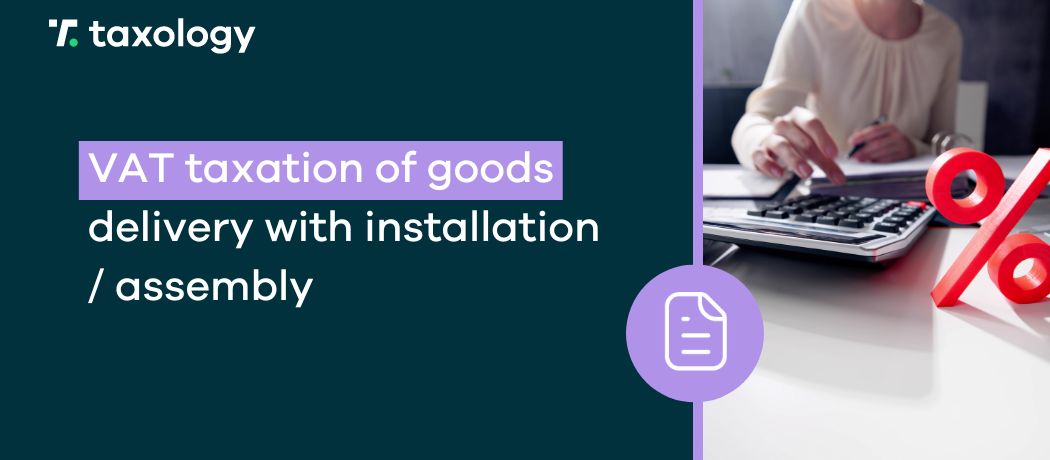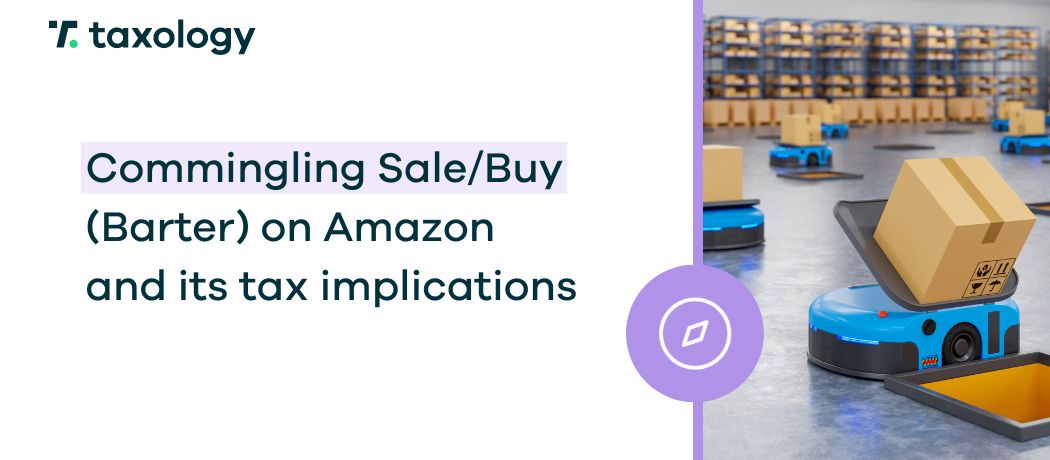Italy ranks as the fourth largest e-commerce market in Europe in terms of value. It is no surprise, then, that it attracts entrepreneurs looking to expand in this direction. However, […]
Read in: 4 minWhat VAT rates apply in the Netherlands?
- Last update: 23.02.2024
- Published: 10.01.2023
- Read in: 5 min
VAT (value-added tax), the tax on goods and services, was introduced in the Netherlands in 1969 and was set at 12%. Currently, the standard VAT rate in the Netherlands stands at 21%, with some products and services subject to reduced rates of 9% and 0%. In the following article, we will cover the most important VAT-related matters in the Netherlands, as well as VAT registration process and settlement.
VAT in The Netherlands. The standard VAT rate in the Netherlands
The standard VAT rate in the Netherlands is 21%, and applies to all goods and services that are not subject to the reduced VAT rate of 9% or are exempt from VAT.
A reduced 9% VAT rate in the Netherlands
The 9% VAT rate in the Netherlands applies to such products and services as:
- food and non-alcoholic beverages
- catering and restaurant services (excluding alcohol)
- agricultural supplies
- pharmaceuticals, medical and therapeutic devices, prosthetics, and other health-related accessories
- works of art and collectors’ pieces
- press, books, textbooks as well as audiobooks and e-books
Reduced 0% VAT rate in the Netherlands
A 0% VAT rate is applied to certain services related to the transport of goods or passengers.
When is VAT payment required in the Netherlands?
The Netherlands is one of Europe’s leading e-commerce markets and ranks as the 17th. largest market in the world. In terms of dominating marketplaces, the Netherlands is a rather unique case on the Western European map, as eBay or Amazon do not rank as one of the top ones. The first places in terms of sales in the Netherlands are held by bol.com, Coolblue, Albert Heijn (ah.nl), and Zalando. Regardless of which marketplace is deemed the best for a particular product, VAT settlement in the Netherlands or using the VAT OSS procedure, in each case is crucial for successful expansion.
The obligation for foreign companies, selling products in the Netherlands, to settle VAT arises in two situations.
The first is when you decide to warehouse goods in the Netherlands, you are required to settle VAT there. This rule concerns both companies using their own warehouses, and those storing goods via fulfillment service providers within the country.
Secondly, the obligation to settle VAT in the Netherlands arises if the total sales to EU countries within the intra-community distance sales of goods exceeds €10,000. However, thanks to this option, VAT can be settled both at the Netherlands Tax Office and via the VAT OSS procedure, which enables e-commerce companies to settle VAT within the EU in a simplified way.
VAT is due by the last day of the subsequent month, following the accounting period.
Deadlines for filing VAT returns and payments in the Netherlands
In order to file for VAT registration in the Netherlands, you are required to have a complete set of documents, which includes:
- The company’s bank statement for the last three months
- A document confirming VAT registration in another EU country
- Excerpt from the National Court Register or Business Register and Inquiries (CEIDG),
- The articles of association,
- Document of identity,
- A signed registration application for the Netherlands.
If the documents are submitted correctly, the process shouldn’t take more than a month.
VAT in The Netherlands. The registration process.
Any mistakes, fraudulent information or delays in VAT returns may be subject to penalties starting at €4920 + 4% annual interest on the tax due.
Potential penalties and interest for incorrect declarations or late payments
The Netherlands Tax Office’s address is:
Belastingdienst/Kennis- en Expertisecentrum Buitenland
Postbus 2865
6401 DJ Heerlen
VAT in The Netherlands. The Netherlands Tax Office
In addition to the obligation to register and settle VAT in the Netherlands, some companies may also be required to report Intrastat. These reports contain information on the import and export of goods between EU countries and the movement of own goods between warehouses in different countries.
This obligation arises once the amount of €5,000,000 on imports, and €1,000,000 on exports, has exceeded.
As VAT compliance specialists, we offer comprehensive support in the field of VAT registration and accounting solutions across Europe. We encourage you to take advantage of our free consultation.




